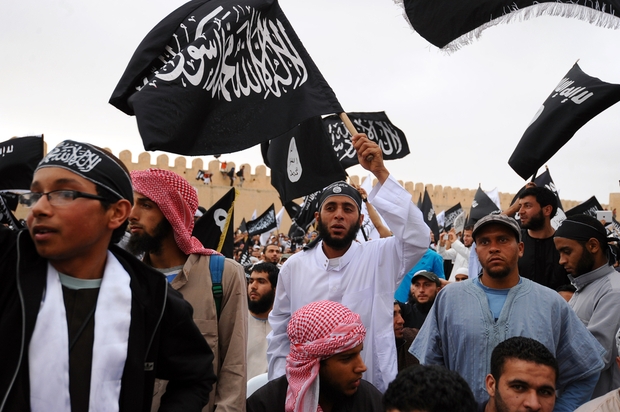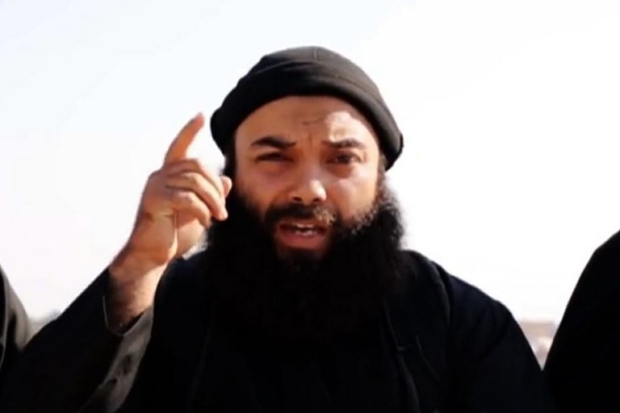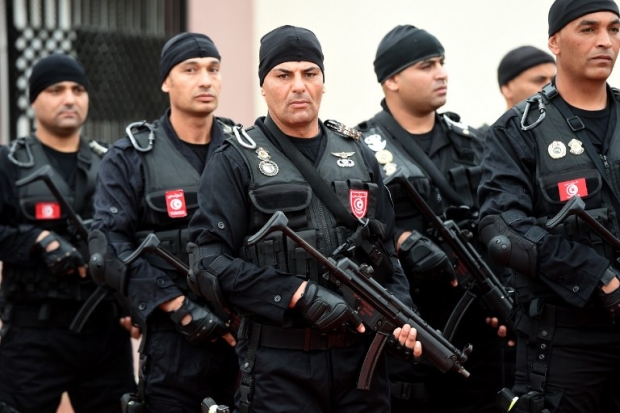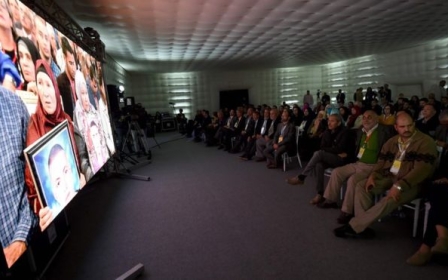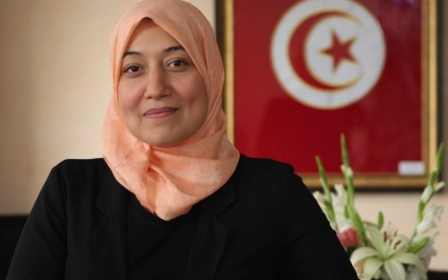Tunisia needs a deradicalisation strategy for returning 'terrorists'
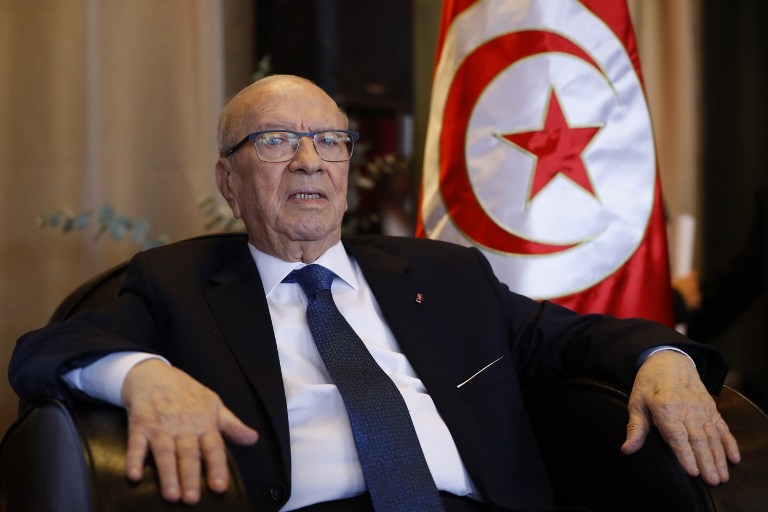
A few weeks ago, Tunisian President Beji Caid Essebsi said in an interview: “We do not forbid any Tunisian to return because it is a constitutional right.”
But, he added: “Tunisia does not have enough prisons to enclose all returning jihadists from conflict zones… We take the necessary measures to ensure that they are harmless.”
'Tunisia does not have enough prisons to enclose all returning jihadists from conflict zones'
- Tunisian President Beji Caid Essebsi
Essebsi didn’t even utter the word “repentance”, yet his declaration was quickly interpreted as a hint about an old debate on the possibility of a “repentance law” to deal with thousands of Tunisians turned foreign fighters who are expected to return from conflicts in Iraq, Syria and Libya.
The president’s comments inflamed an already sensitive issue. Some Tunisians, and especially those who voted in 2014 for Essebsi and his party, Nidaa Tounes, believe in a conspiracy theory that moderate Islamists are using violent jihadists for political leverage.
This is not the first time that a major Tunisian political figure has proposed rehabilitation instead of incarceration alone for suspected terrorists. In 2014, former president Moncef Marzouki proposed a repentance law as part of a strategic plan that was completed by the end of that year. Later, Rached Ghannouchi, the head of Ennahdha, one of the governing parties in the ruling coalition led by Essebsi, suggested the implementation of such a law.
But Essebsi’s recent comments mark the first time such a law has been justified by a weak argument such as the limited space in prisons. Soon after his remarks and under pressure from his base of supporters, Essebsi backed down during a TV interview with Al Arabiya saying that he would not offer any “repentance” or “pardon” to returning terrorists.
A rational debate
Clearly, there is some resistance in Tunisia for a rational debate on this issue. Yet not all of the resistance is a result of paranoia and ideological dogmas.
Some of the old guard, including those in the security apparatus, are still fighting terrorism with aged reflexes. They see any strategic approach of deradicalisation, including rehabilitation and reintegration, as a sign of weakness and submission to the terrorists’ will.
This explains the refusal of Essebsi to adopt a strategy that was prepared and ready to go in 2014, and his ineptness over openly discussing a new strategy of his own. Hence the surprise around his sudden and ambiguous announcement a month ago of the adoption of a “new strategy” without providing any details.
It is essential to emphasise the basic security measures that must be taken with regard to returnees. A key article of the current anti-terrorism and money laundering act states very clearly that any Tunisian involved in terrorist actions outside of the country will face a prison sentence up to 12 years. But it is difficult to prove such “involvement” without any witnesses.
More importantly, focusing on an incarceration-only policy aids the process of recruiting terrorists, especially in the problematic prison system in the country.
These complexities are also driven by the current difficulties facing security forces who handle this issue alone as a result of a shortage of resources and also the possibility that returnees are slipping back into the country illicitly.
The strategy adopted by recent governments facing returnees, who are thought to total 800 until now, from releasing them to putting them in prison or under house arrest, has been unclear.
This is not a strictly Tunisian debate, nor a new one, something which is usually forgotten in Tunisia. Since the 1990s in Egypt and Algeria, and then since the early 2000s notably in Saudi Arabia and Morocco, there has been an increasing focus on reintegration and rehabilitation approaches for returning fighters.
The international community has pushed overwhelmingly for such programmes, especially after the US’s experiences with al-Qaeda and its affiliates in Iraq. In fact, in 2012, the UN’s Interregional Crime and Justice Research Institute (UNICRI) in coordination with the Global Counterterrorism Forum (GCTF), and along with major international and regional powers, established the Rome Memorandum, a platform to explore the best practices to rehabilitate violent extremist offenders.
The group provides 24 “best practices” as a generic framework, but emphasises, in particular, the need for locally based programmes. This has been inspired by a variety of local experiments, from the Danish “Aarhus model”, seen as a very local policy which has received little criticism, to the Mohammed bin Naif Counselling and Care Centre, founded in 2007 by the Saudi Crown Prince.
Criticism of the Saudi programme has mounted since 2010 when the Pentagon said that at least 74 Guantanamo detainees – or one in five freed – had returned to terrorist activity after their release.
The Saudi government defended its programme, saying that it responds to critics and constantly improves the centre. Most of the 3,000 people who have been treated are reintegrated, the government says, and only 13 percent went back to violent activities.
Debate aside, they seem to be successful in making the centre a model to follow. The UN Human Rights Council issued a resolution in March 2016 urging “states, while countering terrorism, to respect and protect all human rights, and to take appropriate measures to duly investigate the incitement, preparation or commission of acts of terrorism, and to bring to justice those engaged in such acts”. The resolution lauded “the positive role of [the centre] in combating terrorism and rehabilitation of people with extremist ideologies and their reintegration into society”.
It must be noted here that Tunisia, under the current coalition led by Essebsi, was among the countries voting for the UN resolution, an indication of the Tunisian government’s disorientation.
But regardless of the specifics of the Saudi and European programmes, Tunisia can learn from the neighbouring cases of Algeria, Morocco and Egypt. The Moroccan case seems to be the closest model from which Tunisia’s young democracy, facing the complicated dilemma of balancing human rights obligations and security requirements, can learn.
All of this is dependent on a brave political decision to establish a relevant strategy unaffected by current sensational controversies.
We have yet to wait for the impact of the rise of far-right sentiments in the West. With the Islamophobic tendencies and the sympathy of the Trumps, Fillons, and the likes combined with authoritarian rulers in the Middle East, we should expect an increasing emphasis on security-only approaches and the marginalisation of any smart and rational strategies, including that of deradicalisation.
Without a doubt, such regressive views are going to be short-lived. They will, however, scupper the fight against terrorism and help, in the end, to create more terrorists.
- Tarek Kahlaoui is a former adviser to Tunisia's first Arab Spring president Moncef Marzouki and the former director of the Tunisian Institute of Strategic Studies. He is currently an Assistant Professor of Islamic History and Art at Rutgers University in New Jersey
The views expressed in this article belong to the author and do not necessarily reflect the editorial policy of Middle East Eye.
This article is available in French on Middle East Eye French edition.
Photo: Tunisian president Beji Caid Essebsi in Paris, France, December 2016 (AFP)
New MEE newsletter: Jerusalem Dispatch
Sign up to get the latest insights and analysis on Israel-Palestine, alongside Turkey Unpacked and other MEE newsletters
Middle East Eye delivers independent and unrivalled coverage and analysis of the Middle East, North Africa and beyond. To learn more about republishing this content and the associated fees, please fill out this form. More about MEE can be found here.



